“It’s time to put this on,” the sergeant said, as she gave Mac a black beret. Mac saw that an emblem bearing a silver skull and crossed lightning bolts was pinned to the front of it. The design was unique insofar as Mac knew, and clearly had been created to make her unit stand out. Mac put the beret on her head and tilted it to the right. Own it, she told herself. Don’t let him down.
The press weren’t sure what to expect when they were bused onto the base and herded into position. A platform had been set up with the JRCF in the background. Rumors flew, the most popular of which had to do with a North-South prisoner exchange.
The cynics in the crowd said no and pointed to the fact that none of the Confederate POWs were being held at Fort Leavenworth. So the discussion was still going on when General Teddy Brock stepped up onto the stage. President Sloan arrived next, followed by a female army officer. That was when a correspondent recognized Mac. “Look!” he said. “That’s Captain Macintyre! The officer who was court-martialed!”
“You mean Major Macintyre,” Brock said sternly. “Please hold your questions. I promise that they will be answered after the president makes an important announcement. Mr. President?”
Sloan stepped forward. “Thank you, General, and good morning. As you know, the United States of America was , and will be once again, the land of second chances. A place where a long list of famous names made mistakes and, by dint of hard work, were allowed to climb back up. President Clinton comes to mind. And it’s in that spirit that I announce the new Military Reintegration Program.
“The purpose of this initiative is to remove nonviolent offenders from our military prisons and put them back on the battlefield. A new cavalry battalion has been created for that purpose. It will consist of three companies of soldiers under the command of Major Robin Macintyre who, as one of you correctly pointed out, was court-martialed for disobeying a direct order. There’s no question that she was guilty, but it’s important to remember that when Lieutenant Macintyre disobeyed that order, the chain of command was in tatters—and it was difficult for a junior officer to know from whom to take orders.
“In light of that fact, as well as her well-documented acts of valor, I granted Captain Macintyre a full pardon as of 0800 this morning—and promoted her to major two minutes later. She, along with officers selected by her, will choose the individuals permitted to join the new battalion. All of those appointments will be reviewed and approved by General Brock.
“Furthermore, a zero-tolerance policy will be in effect. That means that a single infraction of the Uniform Code of Military Justice will be sufficient to send a soldier back to prison where they will have to complete their original sentence.
“But,” Sloan added, “those soldiers who serve twenty-four months without disciplinary problems will receive full pardons. Now, I suspect you have some questions.”
The press did have questions. The first of which had to do with the rumored love affair between Sloan and Macintyre. Sloan tackled the subject head-on. “I admire Major Macintyre for her many acts of bravery in service to our country, and more than that, will be eternally grateful for the lives she saved during our retreat from Richton, Mississippi. And that includes my own.
“But that’s the full extent of our relationship, and I challenge you to produce a single photo or credible witness who says otherwise. The major will report through Colonel Lassiter to General Brock without any involvement by me. This story is about redemption, ladies and gentlemen… And the opportunity to return trained soldiers to the battlefield.”
“Is the Union Army in such desperate straits that it needs to recruit soldiers from prisons?” a television correspondent demanded. “Are the rebs winning?”
“No,” Brock put in. “The rebs aren’t winning. But the Military Reintegration Program represents an opportunity to put even more trained troops into the field and lighten the load on our prison system.”
There was more, much more. And even though the questions became increasingly repetitive, Sloan addressed each and every one of them until the newspeople became visibly weary of hearing the same answers over and over again.
So one of the reporters turned his attention to Macintyre, and the whole thing started over. Did she have a personal relationship with Sloan? When did she learn about the pardon? How did she feel about it? What was prison life like? And had she been in touch with her father, General Bo Macintyre?
Mac did the best she could to imitate Sloan’s slow, methodical style with the same result. Eventually, having run out of questions, the press became less contentious. That was when Brock stepped forward to bring the conference to a close. “A final note, ladies and gentlemen. The new battalion will be called Mac’s Marauders, and those who join will fight under the motto: Optima pessima. The best of the worst. That will be all.”
Sloan left the moment the press conference was over. There were no waves, no good-bye, and no opportunity to thank him. Mac knew that to be a good thing because a picture of them talking to each other might be used to suggest some sort of clandestine relationship. She regretted the suddenness of the parting, however—and was looking forward to seeing him again someday.
The events that followed took place with neck-snapping speed. Mac and two bags of newly issued gear were loaded aboard a Black Hawk for the short flight to the field where the reserve element of General Brock’s division was quartered. Once on the ground, Brock accompanied Mac to brigade headquarters, where she was introduced to her new CO.
Colonel Marvin Lassiter was a lot of things—including a veteran of the war in Afghanistan, an avid runner, and a well-known hard-ass. He had a hawk-like nose and a mouth that rarely smiled. And when they shook hands, Mac felt as if his laser-blue eyes could see right through her. “Have a seat, Major, and welcome to the 31st.”
Mac sat on the chair next to Brock’s. “Thank you, sir.”
Rather than circle his desk, Lassiter chose to perch on one corner of it. “I’m not one for small talk, or for beating around the bush,” he told her. “So I’ll give it to you straight. When General Brock told me what the president was going to do, and that your so-called Reintegration Battalion was going to be part of the 31st, I gave serious consideration to resigning.”
“Except that he can’t resign,” Brock put in, “not unless I sign off… Which I won’t.”
Lassiter made a face. “That means I have to put up with you and your battalion of losers. But understand this… I am not Major Fitch. If you refuse one of my orders, I will shoot you in the face, make up a story to explain it, and grab a good night’s sleep.”
“I didn’t hear that,” Brock said.
“Of course you didn’t,” Lassiter agreed. “Because I never said it. So, Major Macintyre… do we understand each other?”
“Sir, yes, sir.”
“Good. Now here’s how this is going to work. Under no circumstances will you or your pet criminals mix with the fine men and women of the 31st except during a battle. Your convicts will be quartered on a civilian airstrip called Peavey Field. It’s located adjacent to the division, but separated from it by an eight-foot-high fence. And to ensure that your jackoffs behave themselves, I’m going to place one of my officers on your staff. The so-what is that I’ll get a report every time you pass gas. Do you read me?”
Mac swallowed. “Five by five, sir.”
“I’m glad to hear it,” Lassiter said. “Now get your ass out there and go to work! You have thirty days to build a battalion. Not a second more.”
Читать дальше

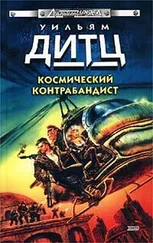
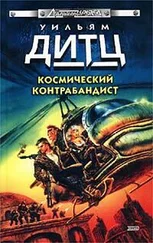
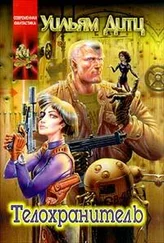
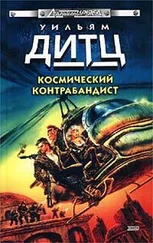
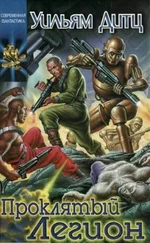



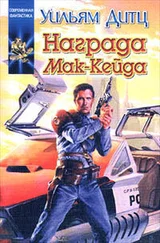
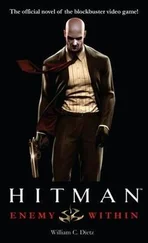
![Уильям Дитц - Избранные произведения в одном томе [Компиляция]](/books/389750/uilyam-ditc-izbrannye-proizvedeniya-v-odnom-tome-k-thumb.webp)
